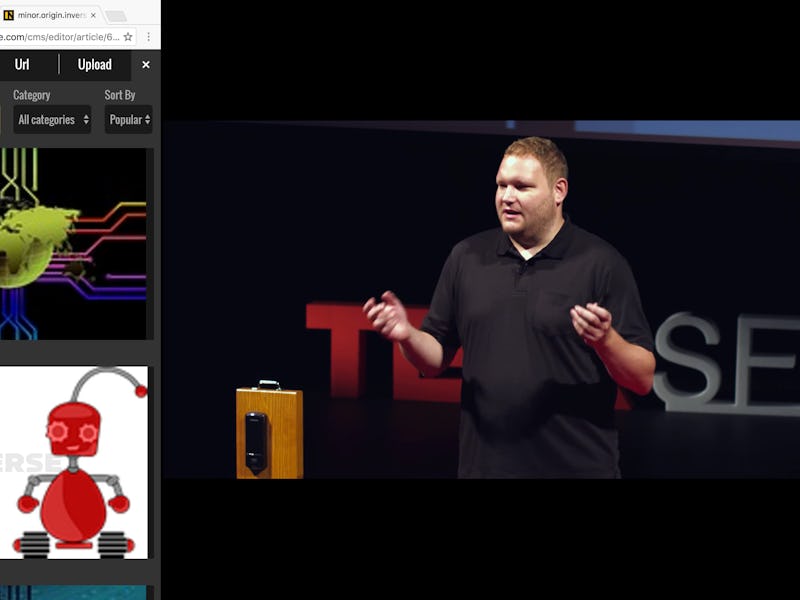You might not want to transform into a cyborg right now, but Amal Graafstra thinks that may change in the coming years.
The 40-year-old American decided to wire himself up over a decade ago. His first plan was to be able to open his office door without a key, using a near field communication chip under his skin. And as attitudes towards implants soften, Graafstra thinks others may want to get chipped up for a variety of tasks.
“The ‘killer app’ for me is payment and transit,” Graafstra told Mashable in an interview published Thursday. “If you can get rid of the keys and wallet with one device, then I think that’s it.”
Graafstra sees biohacking as a necessity for personal safety. If you’re mugged in the street, you’d still be able to get into your house with implants. There’s no tricky surgery involved, either: the chips can be installed with a needle, which Graafstra says only hurts as much as a bee sting.
The world of tech implants extends far beyond NFC, though. Neil Harbisson, the worlds first government-recognized cyborg, has an antenna coming out of his head that can detect colors. Harbisson was born color blind, but his antenna can send colors to his brain beyond the visible light spectrum, meaning he can sense more colors than people born without color blindness. The implant even has internet connectivity, and a select group of friends can share colors with Harbisson from around the world.
Other cyborgs opt for more artistic enhancements. Moon Ribas, a Spanish cyborg that works with Harbisson, can feel the Earth’s seismic movements in real time. A magnet near her elbow relays global earthquakes to her arm, in a bid to “perceive movement in a deeper way,” she said in an interview with Quartz.
Some question whether all cyborg enhancements are a good thing. Medical ethicist Margaret Moon told Inverse that bionic arms may sound cool, but there’s a lot of issues around whether a physician should be allowed to cut off a perfectly healthy arm to replace it.
Graafstra may have implanted himself with chips, but that doesn’t mean he agrees with all enhancements. He worries about implants that alter the human biology in significant ways. “How a pacemaker works, or a deep brain stimulator, those kinds of devices are terrifying to me,” he told Mashable.
